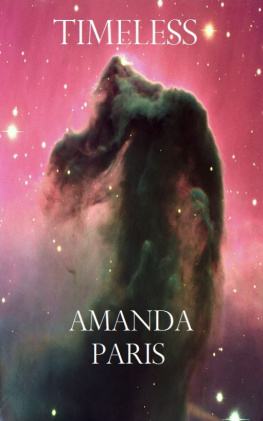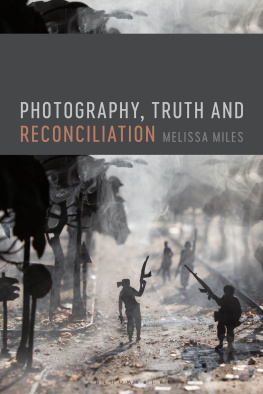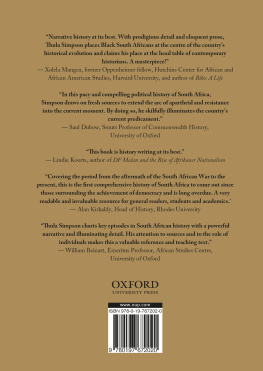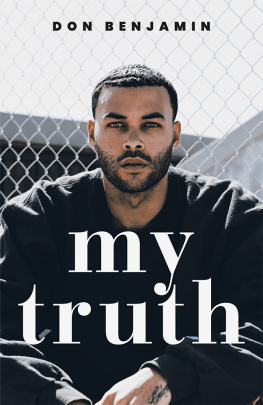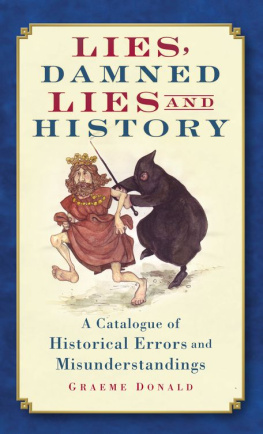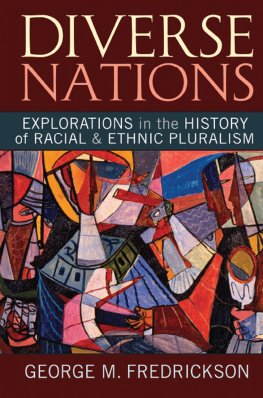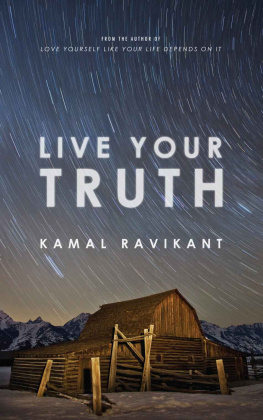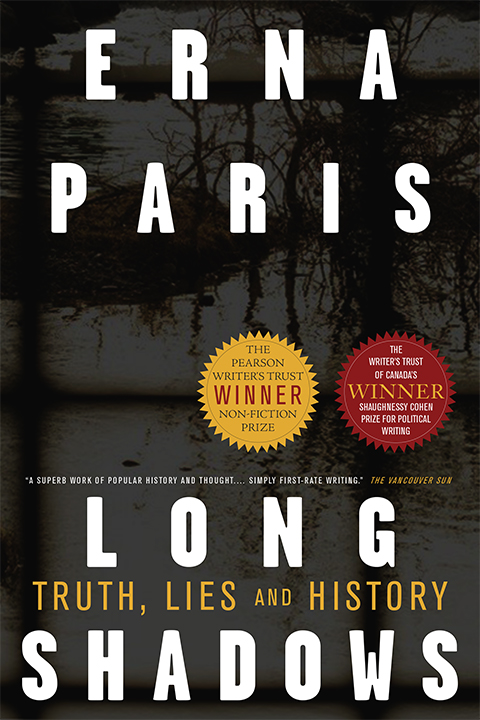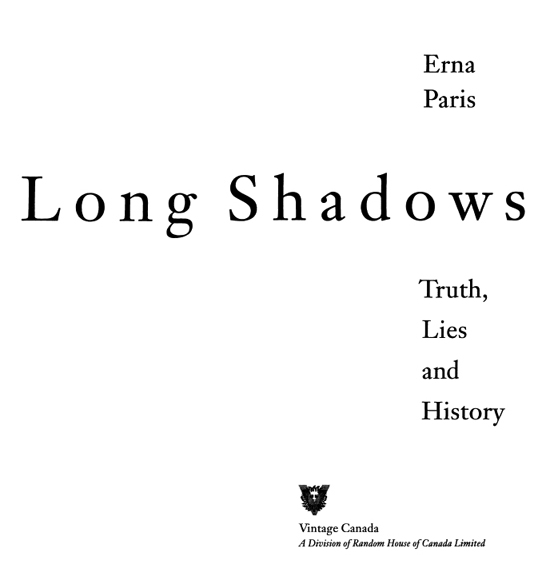VINTAGE CANADA EDITION, 2001
Copyright 2000 Erna Paris
All rights reserved under International and Pan-American Copyright Conventions. Published in Canada by Vintage Canada, a division of Random House of Canada Limited, in 2001. First published in hardcover in Canada by Alfred A. Knopf Canada, Toronto, in 2000. Distributed by Random House of Canada Limited, Toronto.
Vintage Canada and colophon are registered trademarks of Random House of Canada Limited.
National Library of Canada Cataloguing in Publication Data
Paris, Erna
Long shadows : truth, lies and history
Includes bibliographical references.
ISBN 0-676-97276-4
eBook ISBN: 978-0-345-81008-3
1. History, Modern20th centuryHistoriography. 2. WarHistory20th centuryHistoriography. I. Title.
D413.5.P37 2001 909.82072 C2001-901547-X
Cover art: Amy Frueh
www.randomhouse.ca
v3.1
For Roland
ALSO BY ERNA PARIS
The End of Days: A Story of Tolerance, Tyranny, and the Expulsion of the Jews from Spain, 1995
The Garden and the Gun: A Journey Inside Israel, 1988
Unhealed Wounds: France and the Klaus Barbie Affair, 1985
Stepfamilies: Making Them Work, 1984
Jews: An Account of Their Experience in Canada, 1980
The arc of the moral universe is long,
but it bends towards justice.
THEODORE PARKER , anti-slavery abolitionist
Acknowledgements
T HIS BOOK would have been impossible to research and write were it not for the help of dozens of people around the world. Some provided me with important introductions to those who became central to my story. Others put aside the necessary time to be interviewed at length, discuss ideas and direct me to written sources or to places they thought I should visit. The unqualified support I received on this journey over four continents reconfirmed for me a truth I first absorbed as a student living in Paris: beyond the superficial differences of language and culture that divide us, most human beings share a deep commitment about what is just, in both their personal and their political lives; and, second, that it is often possible to communicate at a profound level with just the rudiments of a common language (or through the intermediary of a translator).
I wish to thank all those whose conversation and experiences became part of this book for agreeing to meet me; those who briefed me on the situation in their countries; those who interpreted from one language to another; and the dozens of complete strangers who assisted me at every turn. Thanks to the wonder of the Internet and e-mail, I was able to set up interviews across continents with the press of a button. I could send queries to people I had never met, who were experts in a particular field and, more often than not, get an almost immediate response. The Internet also turned out to be an invaluable tool in other ways: it offered me the chance to participate in several high-level discussion groups, including International Justice Watch, that kept me in touch with events long after I had left the country in question, and provided a facility for reading international newspapers on a regular basis. To name all those who assisted me would be impossible, but without their vast contribution I could not have completed this work in just over three years.
Besides those who are mentioned by name in the text and are therefore part of the story, I would like to express special thanks to the following people for assistance related to specific chapters.
Germany: Joel J. Levy, Thomas Frankl, Rabbi Gunther Plaut, Gerda Freberg, Rabbi Haskel Besser (Ronald S. Lauder Foundation, New York), Bernie Farber, Klaus Schtz, Daniel Moges, Annegret Ehmann, Michael Bouteiller, Pastor Gnter Harig
France: Michelle Lapautre, Lucie Aubrac, Raymond Aubrac, David Assouline
Japan: Joseph Wong, Catherine Bergman, Katherine Ashenberg, Brian Burke-Gaffney, Katsukuni Tanaka, Noboru Tasaki, Yukiko Matsuda, Akitsugo and Saori Taki, and Masamichi Sugihara and Kazuo Tanaka of the Japan Foundation, Toronto
United States: Maxine Sidran, Mark Potoc, Penny Weaver, Rep. Alvin Holmes, Joshua Washington, and the students and teachers at Septima P. Clark Corporate Academy, Charleston, South Carolina
South Africa: Marq de Villiers, Thom Rose, Vernon Seymour, Aggrey Klaaste, Bandi Mvovo, Robert S. Kriger, Brandon Hamber, Andr du Toit, Mary Burton, Stephen Friedman, Hermann Giliomee, Mossie Van Der Burg, Sam Hutamo
Belgrade and Sarajevo: Amela Simi, Duko Vidak, Bora Kuzmanovi, P. Vlahovi, Nemanja Krajinovi, Slavo anti, Sead Fetahagi, Kemal Kurspahi, Mladen Pandurevi
The Hague: Minouche Mangnus, Patricia Sellers, Catherine Siss
I am greatly indebted to several people who were kind enough to read draft material during the writing of the book, although I hasten to say that all errors in fact and interpretation are mine alone. They are R. John Pritchard, director of the Robert M. W. Kempner Collegium, Programmes and Publications on the History and Jurisprudence of International Criminal Law and International Human Rights, in London, who read the chapters on Nuremberg and Japan; Yoshiyuki Masaki, human rights activist and professor of English at Fukuoka, Kyushu, who read the chapter on Japan; Andras Riedlmayer, Fine Arts division of Harvard Library, who read the chapter on Bosnia and Serbia; Raphael de Kadt, professor of political science at the University of Durban, who read the chapter on South Africa; Thomas Lutz, director of the Memorial Museums department of the Topography of Terror Foundation in Berlin, who read the chapter on Germany; and David Lewis Stein, who read the chapter on the Holocaust. Lynn Cunningham offered useful suggestions on the first drafts of several chapters, and Don Obe edited an early version of the Japan chapter as part of my residency at the Banff Centre for the Arts in July 1996. Special thanks are due as well to Myrna Kostash, Phyllis Grosskurth, Alberto Manguel, Eric Miller, Ruth Miller, Tony Miller, Ian Montagnes, Maurus Pacher, Gail Singer, Victor Solnicki and my nephew, Adam Newman, for help that ranged from advice on subject matter to providing me with contacts and documentation.
Louise Dennys, the publisher of Knopf Canada, personally edited the manuscript with her renowned skill. I consider it a special privilege to have worked with her, as well as others in the Knopf team with whom I have been involvedMichael Mouland, Noelle Zitzer and Nikki Barrettand freelance copyeditors Beverley Beetham Endersby and Alison Reid. My enthusiastic agents, Bruce Westwood, head of Westwood Creative Artists in Toronto, and his colleagues Jennifer Barclay, Samantha Haywood and Hilary Stanley never failed to bolster my spirits when my energy ebbed.
On the practical side, I am profoundly grateful to the Canada Council for the Arts for financial assistance with necessarily onerous travel expenses; to the Japan Foundation in Toronto, for financing part of my trip within Japan; and to the Cultural Journalism and Creative Non-Fiction program at the Banff Centre for the Arts for the productive 1996 summer fellowship.
As ever, my deepest thanks go to my immediate family for their generosity in putting up with a wife, mother and daughter who has been away, buried at her desk or generally preoccupied for several years. My father, Jules Newman, who died in January 1998 during the writing of this book, was a man who [drank] life to the lees, in the lovely words of Alfred Lord Tennyson. His intelligent curiosity about people, places and ideas never flagged. It was he who first opened my eyes to the world. My mother, Chris Newman, has supported my interests for a lifetime. It was she who directed me, by example, to read a daily newspapera habit that taught me early in life that the most dramatic human stories can be found, unadulterated, in the real world. My daughter, Michelle Paris, has, for years, performed feats of technical wizardry with my ever-failing computers and been willing to listen to me read sections of my work aloudfor content, rhythm and tone. Our trip together to Yad Vashem in Jerusalem was an experience neither of us will forget. My son, Roland Paris, an assistant professor of political science and international affairs at the University of Colorado in Boulder, made an inestimable contribution to the research on this book. He supplied me with information about hundreds of relevant new journal articles, for the study of post-conflict justice and reconciliation is currently emerging as an important topic of academic investigation. Whenever possible, we talked together about the issues, which also interest him in a professional capacity.


